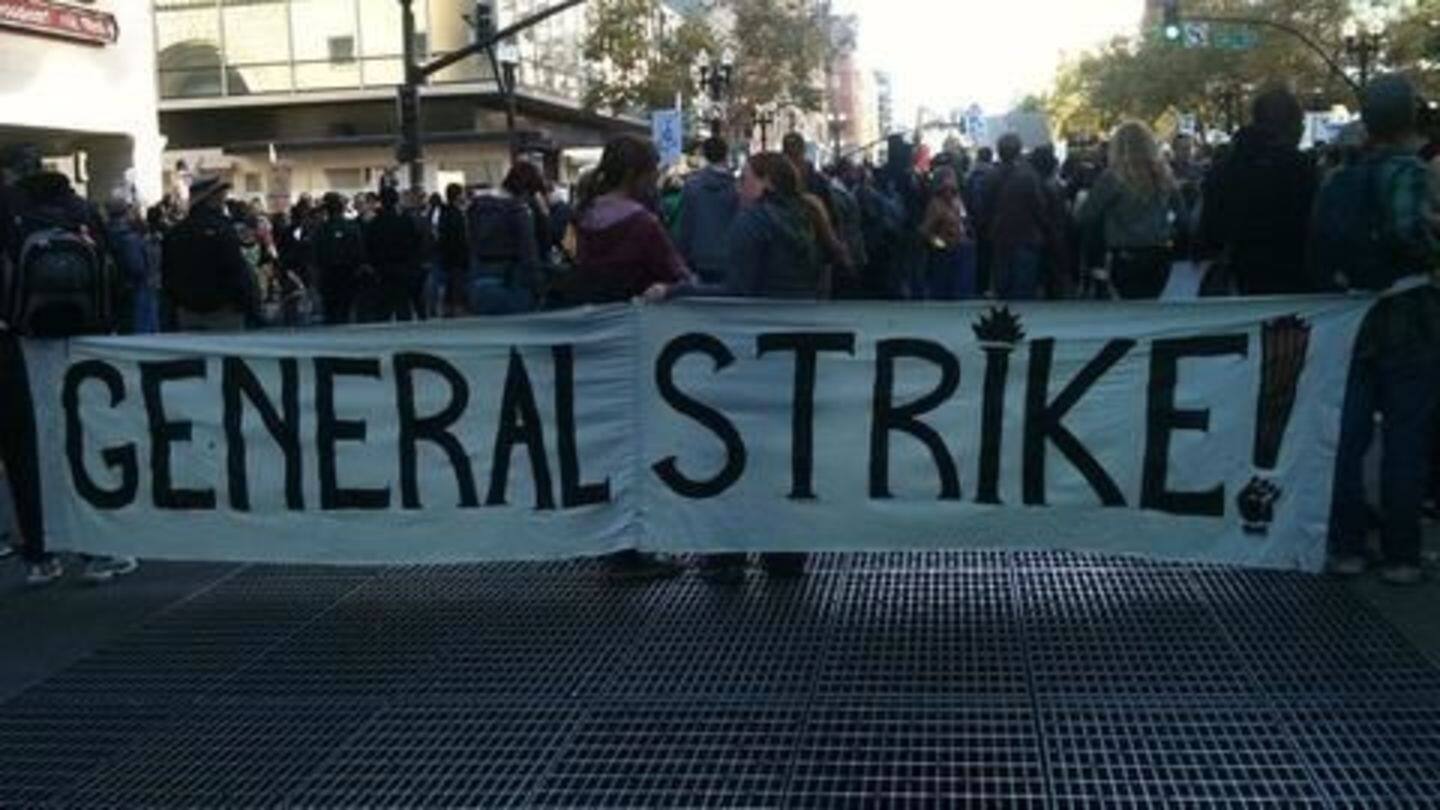
Brazil burns as the first general strike ended
What's the story
Violence has broken out in Brazil as the country saw its first general strike in almost 20 years. Buses and cars were torched in Rio de Janeiro's city center. Road blocks placed by workers were also set on fire and shops burnt. President Michel Temer said he would maintain his "efforts to modernize the country" even though he regretted the violence.
Introduction
Brazil's burden: Pension reforms eating into the country's GDP
Brazil has been fighting the worst recession in ages since the last President got impeached. In Brazil, people over 65 make up 8.5% of the population. Brazil will be spending 26% of its GDP (currently it spends 12% of its GDP) on pensions according to the International Monetary Fund. In Brazil, a person is entitled to a basic pension equivalent to the minimum wage.
Do you know?
Brazil's retired population to grow by 260% by 2060
Brazil's projected retired population by 2060 would grow by 260% and for the same period of time, the active population will fall by 6.7%.
December 2016
Temer introduces draconian pension reforms
President Temer proposed a pension reform that would "set a new minimum age for retirement" to 65 years instead of the usual 55. This would mean that people would suffer a 50% increase in time served to get a pension. Moreover, the low-income elderly would have to wait for 5 more years for collecting their support. His reforms would also pave way for privatization.
15 Mar 2017
Brazil looking towards a general strike after 31 years
Trade unions and worker rights groups were quick to mobilize against the draconian reform which drew protest from hundreds of thousands of people across the country. The country's capital Brasília saw 5000 protesters who invaded and took over the finance ministry. The union federations, calling the reforms anti-worker cast of the measures, have unanimously called for a strike.
28 Apr 2017
General strike in Brazil over pension reforms
Workers have staged a strike to protest against Temer's pension reforms. From teachers to transport workers, a lot of people participated in the strike. Major highways/roads to Rio de Janeiro and São Paulo were cordoned off. In Santos, the police had to use gas-bombs to open a road and demonstrators retaliated by throwing rocks. Cabs were running at discounted prices to help the public.